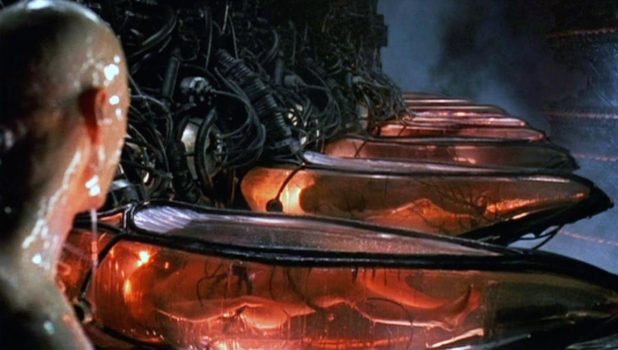We should probably take some time to reflect about the –
Never mind.
It doesn’t matter at this point.
The 2018 sci-fi film “Ready Player One” offers a glimpse of what many technology companies prophesize is the Internet’s next big thing.
Inspired by a 2011 Ernest Cline novel, the film’s orphaned teenage hero flees his bleak real-world existence by immersing in a dazzling virtual reality fantasy. The boy straps on his headset, reminiscent of a pair of VR goggles, and escapes into a trippy virtual universe, dubbed “OASIS.”
“People come to the OASIS for all the things they can do, but they stay for all the things they can be,” the main character says in the trailer.
A number of sci-fi-inspired tech CEOs say that one day soon, we will all be hanging out in an interactive virtual reality world, complete with games, adventures, shopping and otherworldly offerings, just like the characters in the movie.
Instead of OASIS, they call it the metaverse.
The metaverse is different from today’s virtual reality, where clunky headsets offer siloed experiences and few chances to cross-play with people who own other gadgets. Instead, the metaverse would be a massive communal cyberspace, linking augmented reality and virtual reality together, enabling avatars to hop seamlessly from one activity to the next.
It’s a huge undertaking that would require standardization and cooperation among tech giants, who are not prone to collaborating with competitors — though it hasn’t stopped many from saying the metaverse is just around the corner.
Facebook should be known as a “metaverse company,” CEO Mark Zuckerberg said in July on an earnings call. The goal, he said, is to populate this virtual world by enticing new users with cheap headsets. Eventually, Zuckerberg hinted, this robust user base would prove an adverting boon: “hundreds of millions of people” in the metaverse “compounds the size of the digital economy inside it.”
Facebook moved closer to this vision in recent weeks, revealing a virtual reality workspace for remote workers. The company is also working on a smart wristband and VR goggles that project the wearer’s eyes. The company is investing billions of dollars into the effort.
The metaverse doesn’t exist today, and there’s no clear date for its arrival. Augmented reality and virtual reality have yet to woo the masses and remain a niche interest, despite Zuckerberg’s pledge in 2017 to bring a billion people onto Oculus headsets.
But Facebook isn’t the only company betting heavily on the metaverse.
In May, Microsoft said it is “uniquely positioned” with a stack of artificial intelligence and mixed reality tools to help companies start developing “metaverse apps today.” A number of gaming companies, including Fortnite’s owner Epic Games, have released simulation software and VR services for a metaverse. Here’s what you should know.
What is the metaverse?
The term was coined by writer Neal Stephenson in the 1992 dystopian novel “Snow Crash.” In it, the metaverse refers to an immersive digital environment where people interact as avatars. The prefix “meta” means beyond and “verse” refers to the universe. Tech companies use the word to describe what comes after the Internet, which may or may not be reliant on VR glasses.
Think of it as an embodied Internet that you’re inside of rather than looking at. This digital realm wouldn’t be limited to devices: Avatars could walk around in cyberspace similar to how people maneuver the physical world, allowing users to interact with people on the other side of the planet as if they’re in the same room.
But for a robust virtual universe, everyone needs to want and afford VR headsets. The technology would need to be stylish and minimal enough to interest more people and sophisticated enough to work seamlessly. That hasn’t happened yet.
…
So why are companies doing this?
It depends on whom you ask.
VR companies say it’s only a matter of time before consumers, already obsessed with social media, will want somewhere new to interact and attract digital likes. A metaverse could allow people tired of photo filters and video editing tools to digitally embody whole new personas and show their creativity or financial status through avatars. It might also drive young people to spend even more time online.
Facebook for years has described its mission as connecting people online, whether it’s through virtual reality, groups on the social networking app or commerce business. Zuckerberg argues that the metaverse is part of the company’s natural evolution, allowing people to move between virtual reality, augmented reality, personal computers and traditional smartphones.
We all know what these people think they’re going to do, and it’s just a matter if that happens or not.
It’s interesting, however, that they’re now getting more open about it.
Of course, everyone already expected it, because of decades of science fiction films.
 Daily Stormer The Most Censored Publication in History
Daily Stormer The Most Censored Publication in History






